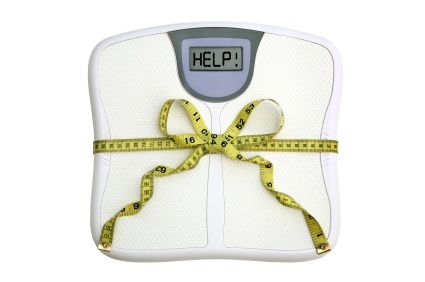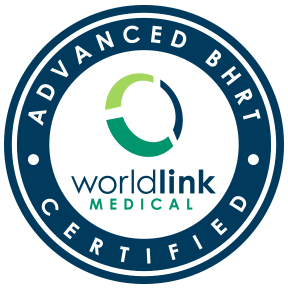If you are trying to lose weight like most people these days, you might find yourself becoming fairly attached to your bathroom scale. However, there is a better “weigh,” pardon the pun, to monitor your weight loss progress than to rely on this “irrelevant” and out-dated method.
Is this you? When the number on the scale goes down, you scream with joy and accomplishment, but when that number goes up, you have feelings of defeat and wonder what’s the use? If so, this is too bad because “weight” is not what you should be measuring to assess your results, and the feelings of defeat only serve to discourage you from continuing your weight loss efforts.
“Weighing” is actually the least effective way to measure your health and your progress. What the scale measures is the volume of blood in your body, the undigested food in your gastrointestinal system, the fluid in your lymph system, the glycogen in your liver and muscles, and other body components that can fluctuate throughout the day and from day to day.
It is quite normal for the amount of fluid in the body to fluctuate. Water actually makes up over 60% of the total body mass (weight). Extra weight reflected on the scale in the form of water retention, however, is often what is responsible for the feelings of failure felt by those trying to lose weight. Although, some water retention is normal, a great deal of water retention can be prevented. Ironically, it is actually a lack of water and fluid intake that is contributing to the water retention. Dieters often restrict not just calories but also their fluid intake. This may be due to them omitting calorie-dense drinks, without replacing them with water. When the body is deprived of water it perceives it as a threat to survival, and therefore compensates by conserving water. In addition, if the diet is too high in sodium (like so many American diets), this causes the body to hang on to even more water. Drinking adequate water will help you maintain proper fluid balance and help flush out excess sodium. An adequate amount of water will vary from person to person, but a general guideline is to drink ½ ounce per pound of body weight.
A very common cause of water retention in women occurs just prior to menstruation, and most always disappears as quickly as it appears. Again, this water weight gain can be reduced by drinking plenty of water, avoiding highly processed and high sodium foods, as well as maintaining an exercise program.
Another body component that can tip the scale is the amount of glycogen or carbohydrate that the body stores. The body stores carbohydrate in the liver and in muscles, in the form of glycogen. This storage is important for when one is unable to eat, such as when sleeping, or when exerting a lot of energy quickly and unexpectedly. This reserve of energy (glycogen or carbohydrate stores) weighs about one pound, and has attached with it, 3 to 4 pounds of water, hence the word “carbo-hydrate.” If you fail to consume adequate carbohydrate (as many do when they begin an unhealthy fad diet), your glycogen stores will deplete, and consequently, so will the water that is with it. The body, however, cannot go for very long without adequate carbohydrate so when the body restores its reserve of carbohydrates, its associated water is also restored. Don’t be alarmed by weight shifts of up to 2 pounds per day, even with no changes in your calorie intake or energy expenditure. This is quite normal and has nothing to do with fat loss. Unfortunately, the worse thing it does is create anxiety when the scale doesn’t move in the desired direction.
Don’t forget about the actual weight of the food you eat. If you just ate dinner and your food is undigested, you may as well just be carrying around a bunch of marbles, because the food and drink you just consumed might weigh 4 pounds. This is not fat gain. The message here is not to weigh yourself right after you have eaten because the extra weight is the weight of the food. Instead, weigh yourself first thing in the morning before you have consumed any food or drink, but, remember that the morning weight is also not representative of what we weigh either, because we are actually dehydrated first thing in the morning. The first thing we should do when we awaken is to drink water.
If you still are not convinced that the 4 pound weight gain you managed to put on after your dinner meal is not the weight of the food, think about this: In order to store 1 pound of fat, you need to consume 3500 calories. If the 4 pounds you gained from your dinner meal was stored as fat, this would mean you would have eaten a 14,000 calorie meal—-not likely, nor humanly possible! The same rationale can work in the other direction. In order to lose 1 pound of fat, you need to reduce your intake or increase your activity by 3500 calories. A fat loss of only 1 to 2 pounds a week is realistic, but if you went on a very low calorie diet and lost 10 pounds in one week, this weight loss was not due to losing fat but instead to losing water, glycogen or muscle weight. A ten-pound weight loss in one week would equate to decreasing your calorie intake by 35,000 calories that week—–does that make sense?
In addition to water, glycogen stores and undigested food in the gastrointestinal track, ones weight is also made up of muscle, bones, glycogen stores, organs, and fat, so if we lose weight we could actually be losing any one of these components. The reality is that the scale can’t tell us what component of our weight we have lost. Unfortunately, what often happens when people go on the wrong type of diet is they don’t always lose fat, but instead, lose valuable metabolically active muscle mass, which ultimately contributes to the decline in fat loss and future difficulty in maintaining a healthy weight. Therefore, one should see a professional, such as a registered dietitian, to help lose weight the right way and to also begin using the right measurement tool to determine success. One such measurement tool is one that measures “body composition,” to give you a percentage of your body’s muscle, as well as fat mass.
Other than determining your body composition through simple analysis-testing, what is the best tool to measure your weight loss success? You might be surprised, but the best “weight measurement” tool is …the mirror! Do you look healthier? Are you less bloated? The second-best weight measurement tool is…..your feelings! Your feelings are NEVER wrong. Do you feel better? Do your clothes feel like they are fitting better? Are your rings feeling looser on your fingers? Do your muscles feel firmer? And the third-best weight measurement tool is……a change in your lifestyle habits? If you do the right things, more often than not, you will get the results you are aiming for! If you are eating right, exercising, sleeping well, and managing stress, don’t let a small normal fluctuation in the scale tell you any differently!
Let’s face it though…….despite being armed with all this knowledge about what actually comprises our body weight, it is still going to be difficult for we humans to give up our scale. So, if you must use the scale some experts suggest not to weigh yourself for at least two months after beginning a new lifestyle plan, in order for your body to get adjusted to its new style. Again, however, we humans like more immediate gratification. So, if you insist on weighing yourself, do it only once a week, preferably at the same time of the day. In the morning upon awakening is generally the best time of the day because that is when we always weigh less. But, don’t forget……this number on the scale is not the sum of your success!








